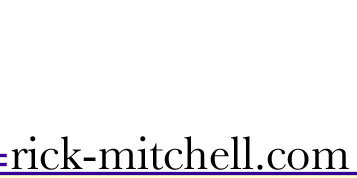Sardinia's Net Star
Tiscali has expanded from its island home to become one of Europe's biggest ISPs, snapping up rivals like...well, sardines. But can it maintain the momentum, asks Rick Mitchell?
Renato Soru, the founder of Italian web pioneer Tiscali, named the company after a vast, silent cave on a mountaintop in the center of Sardinia, in which ancient islanders used to hide from their enemies. The inaugural advertising slogan was: "Tiscali. From a land of silence comes a new way of communication."
Based in the port town of Cagliari, Tiscali is now one of Europe's biggest ISPs and certainly its most aggressive. With an estimated 16 million registered subscribers (expected to rise to 20 million soon), 7 million are active, it ranks behind only T-Online. In terms of geographical footprint, it is bigger.
The company has made some 15 major acquisitions in the last year and a half, spending a reported €106 million 2000 alone. It bought World Online in Holland, France's LibertySurf, LineOne in the UK and Planet-interkom in Germany, as well as 70% of the portal Excite Italia. It launched the TiscaliNet portal in Spain early this year.
To finance all this, Tiscali held an enormously successful October 1999 IPO of 23% of its shares on Milan's Nuovo Mercato. . For one brief heady moment, its market capitalization was higher than that of Fiat, which employs 220,000 people.
Closer to earth these days, Tiscali remains among Italy's top-30 companies in terms of market capitalization, employing about 3,000 people. At the time of writing,its shares were some way below the IPO price of €46 (and certainly below the all time high of €428). But it plans to apply for listing on Paris's Nouveau Marché. "Soru is very financially astute,"says Michael Halama a London- based analyst for Gartner Dataquest. "I think that, so far, the group is built more on his financial acumen then anything else."
The company has displayed considerable marketing savvy, too. "When Tiscali was born, we did not have a lot of money for advertising, so we did it totally online," says the company's marketing director, Mario Mariani. Tiscali used a viral marketing model, relying on the Internet, member- referral and loyalty-reward programs to promote its products.
Times have changed -- these days Tiscali uses Satcchi & Satcchi for TV, press, and outdoor advertising. "We are a big company now. We have resources," Mariani shrugs. But he stresses: "Of course, we still think it's not a good idea to invest too much in traditional advertising. A large part of our advertising is still online."
For the moment, however, advertising is on hold as the group rebrands and accelerates toward its target of profitability by 2001. It posted 2000 sales of €173 million, up from €32.8 million in 1999, not including World Online. On May 15 the company said it had reduced first-quarter operating losses to €58 million, down from €140 million for the fourth quarter of 2000. Says Mariani: "In September we will start a new advertising campaign, country to country.We intend to be sensitive to country issues. We don't want to lose customers."
In common with other companies attempting to merge several divergent cultures and languages, Tiscali has had internal personnel problems. Earlier this year, the company lost its C.E.O, American James Kinsella, due to disagreements over strategy with Soru. With Liberty Surf founder and chairman Pierre Besnainou also gone, Soru is back as C.E.O.
Country issues
Before his Tiscali venture, Soru launched a chain of mini shopping malls on Sardinia, as well as finding time to create the Czech Republic's top ISP. His European ambitions seem almost quixotic, considering that his main rivals are the inexorable AOL and the Internet subsidiaries of giant telephone companies with deep pockets.
A tighter advertising budget obliges Tiscali to focus on local markets and measure the impact of its advertising effectively. Soru seems to realize this -- a few months ago his company signed an agreement with Nielsen/NetRatings for Internet audience and advertising data from multiple European countries and South Africa. It will also get access and penetration data for Europe, Asia Pacific and North America.
Some analysts have cast doubt on the viability of Tiscali's free access model, but Marianis insists: "The free model won't disappear. And it is not really free. It brings in revenue because the customer is paying local phone costs that Tiscali shares in."
The company does not seem to have put a rein on its ambitions. Two months ago it started a DSL (high-speed Internet access) service in Denmark. Its acquistion of Excite Italia acquisition boosted content and also increased Tiscali's domestic broadband and VoIP (voice over Internet Protocol) sales distribution, added Excite Italia's 1 million registered users and 1.5 million unique monthly visitors, and advertising revenue.
But the big question is: can Tiscali make it in today's harsh climate? Mariani observes: "It's strange, but when everybody was talking about the Internet, business for us was not so good. But now there is a slump, Tiscali is close to breaking even. We see it as a period of opportunity."
According to Halama, the market's potential remains vast, but ISPs should focus on customers, not just buying everything in sight. "There were 112 million Internet users in Western Europe at the end of 2000 and Gartner Dataquest forecasts 218.5 million at end-2005. Only 51.4% of them are already subscribed. Taking those figures into account, that still leaves a lot to grab. Those who are wise are going to be building a service that attracts customers.
(Appeared in July 2001)

